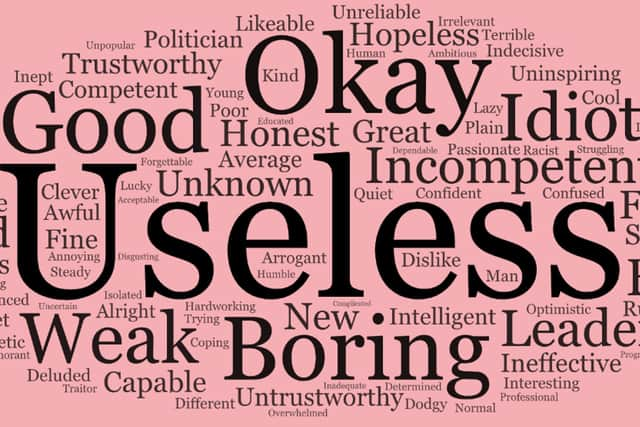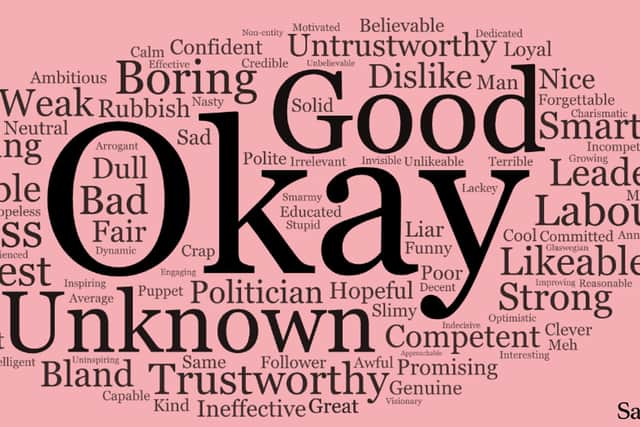Exclusive:Humza Yousaf branded 'useless' by voters in 'word cloud' poll while Anas Sarwar and Douglas Ross 'okay'
Humza Yousaf faces an uphill battle to rehabilitate his image as a competent leader after voters branded him incompetent in a new poll.
Voters were asked to describe all three leaders of the main Scottish parties without a prompt, with their answers pooled together to create a word cloud.
Advertisement
Hide AdAdvertisement
Hide AdIt was part of a Savanta poll for The Scotsman that interviewed 1,002 Scottish adults online between October 6 and 11.


The results demonstrate the different views held by the public about the leaders, with the largest words representing the most common responses.
For Mr Yousaf, the First Minister, he is most commonly referenced as being “useless”, likely due to his nickname regularly used online by opposition activists; “Humza Useless”.
Other common responses include “okay”, “boring”, “good”, “weak”, “idiot” and “incompetent”.
Scottish Labour leader Anas Sarwar fares better, with the most common response being “okay”, followed by “good”.


The third most common response was “unknown”, suggesting the closest challenger to Mr Yousaf still has work to do to get to know the electorate.
Other common words included “boring”, “useless”, trustworthy”, “honest”, “bad”, “Labour” and “strong”. The wide variety of words is further evidence many voters are yet to make up their minds about Mr Sarwar.
Douglas Ross, the Scottish Conservative leader, also struggles from negative perceptions.
Advertisement
Hide AdAdvertisement
Hide AdHis most common word is “okay”, followed by “useless”. "Idiot” is the third most common, alongside “boring”, “weak”, “Tory”, “bad”, “bland” and “unknown”.


The poll results are published as Mr Yousaf is set to address the SNP conference for the first time as leader and as First Minister.
The speech is set to announce that in each of the next three years the Scottish Government will provide an extra £100 million to NHS Scotland in a bid to tackle waiting lists and improve patient care.
He is expected to say: “This additional funding will enable us to maximise capacity, build greater resilience in the system and deliver year-on-year reductions in the number of patients who have waited too long for treatment.
“That will reduce waiting lists by an estimated 100,000 patients by 2026.”
Comments
Want to join the conversation? Please or to comment on this article.
